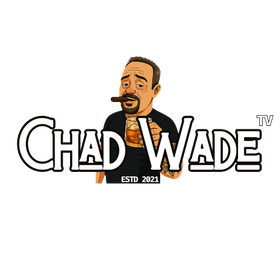Most smoke shop owners think training means showing an employee how to run the register and telling them where the mop is. That’s not training—that’s babysitting. If you want employees whomake you money, you need to build a training system that turns warm bodies into salespeople who know the products, know the customer, and know how to move merchandise.
Here’s the no‑BS breakdown on how to train your team the right way.
Why Training Matters (and Why Most Owners Screw It Up)
-
Sales lost daily. If your staff doesn’t know how to upsell papers, tips, and a lighter with every blunt wrap, you’re leaving thousands on the floor.
-
Bad habits spread. One lazy worker shows a new hire shortcuts, and now you’ve got a culture problem.
-
Customers notice. If your employees don’t know the difference between delta‑8 and HHC, your customers will just shop somewhere else.
-
Owner stress. If only you know how to sell, you’ll always be chained to the counter.
Training is an investment that multiplies your time and money. Skip it and you’ll be stuck forever.
Step 1: Build a Training System, Not Random Lectures
Training can’t be one big info dump on day one. Employees will forget half of it before their first lunch break. Instead, build a system:
-
Day 1: Basics – greet, ID check, register, and cleaning routines.
-
Week 1: Core products – wraps, papers, vapes, disposables, grinders.
-
Week 2: Sales process – upsells, attach items, handling objections.
-
Ongoing: Weekly 10‑minute drills (product knowledge + roleplay).
Keep it simple, short, and repetitive. Repetition locks it in.
Step 2: Train Sales, Not Just Tasks
Employees who only “ring things up” aren’t making you money. Teach them how to sell.
The Core Sales Flow for Smoke Shops:
-
Greet immediately. Eye contact + “What’s up, man, what can I get you today?”
-
Qualify. Ask: “Rolling or vaping?” This directs them fast.
-
Offer options. “Most people pair these wraps with tips—it burns smoother.”
-
Upsell naturally. “Grab a lighter today? We’ve got the new torches in.”
-
Close with gratitude. “Appreciate you, man. See you next time.”
Drill this until it’s muscle memory.
Step 3: Product Knowledge = Confidence
Customers buy more when they trust the seller. Train employees to know:
-
Difference between glass quality levels (China vs. American).
-
Main cannabinoids (delta‑8, delta‑9, HHC, THCA).
-
What accessories pair well (trays, grinders, lighters).
-
Best‑sellers by category (so they can recommend with authority).
Tip: Don’t try to teach everything at once. Teach one product a week.
Step 4: Use Roleplay to Kill Awkwardness
Yes, roleplay feels goofy. Do it anyway.
-
Employee plays cashier, you play customer.
-
Customer: “I just need papers.”
-
Cashier should respond with: “Cool—want tips with that? Helps it burn smoother. We also have a 2‑for‑1 special on lighters.”
Do this 10 minutes a week and you’ll double attach sales.
Step 5: Track and Reward Performance
Training means nothing if you don’t measure results.
Track per employee:
-
Sales per shift.
-
Average ticket size.
-
Upsell conversion rate.
Post the scoreboard weekly. Top seller gets a $20 gift card or free product. Recognition drives performance.
Step 6: Reinforce Every Day
Training isn’t “set and forget.” Keep sharpening.
-
Start shifts with a 2‑minute product spotlight.
-
End shifts with a quick review: “What did you upsell today?”
-
Run surprise quizzes—winner gets a spiff.
Employees need constant reminders until selling is automatic.
Step 7: Eliminate Excuses Early
Some employees will roll their eyes, say “I’m not a salesperson,” or act like training is beneath them. Cut them fast.
Your shop doesn’t need order‑takers. It needs closers. If they can’t get on board with training, they’re dead weight.
Common Training Mistakes Shop Owners Make
-
Overloading day one. New hires forget 90% of a crash course.
-
Never following up. If you don’t check their upsells, they stop doing them.
-
Relying on “experienced” hires. Just because they worked at another shop doesn’t mean they know how to sell.
-
Avoiding roleplay. It feels weird but it works.
The Final Word
Training isn’t optional. It’s the difference between a shop that grinds paycheck to paycheck and a shop that throws off steady profit with or without the owner there.
A trained employee makes you money every shift. An untrained one costs you money every shift. Which side of that equation do you want to live on?
Stop hoping employees figure it out. Start training them to sell.
For more real‑world systems to grow your shop, head over to ChadWadeTV.com.

